China seeks to resolve disputes through peaceful talks: ambassador
Updated: 2014-04-26 07:03
By ZHANG FAN in New York (China Daily USA)
|
||||||||
|
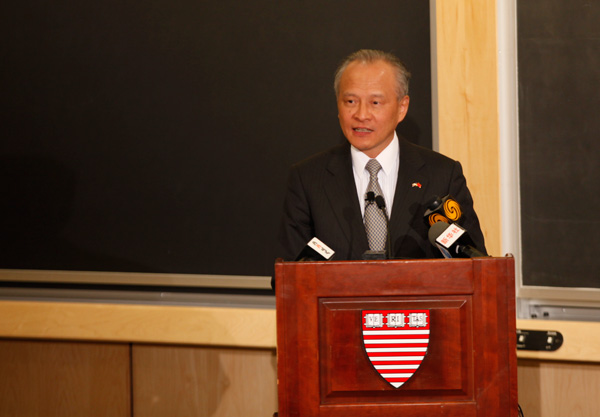 Cui Tiankai, Chinese Ambassador to the United States, makes a public speech on China's policy towards the Asia-Pacific region at the Harvard Kennedy School on Friday. Wang Hao / For China Daily
|
China is committed to regional stability and peace and will solve disputes through dialogue and negotiations, Chinese ambassador to the US Cui Tiankai said.
Speaking on China's Asia-Pacific policy at Harvard Kennedy School Friday, Cui said China's foreign policy "gives the highest priority to its relations with its neighbors. This has been the case all along, but particularly so since China started reform and opening up about 35 years ago," the ambassador said.
Cui's remarks come after US President Barack Obama pledged to support Japan in its territorial disputes with China over the Diaoyu Islands during the president's recent Asia tour. Obama’s statement was strongly criticized by the Chinese government. China's foreign ministry urged the US to "respect the fact" that the Islands are China's "inherent territory".
Cui said President Xi Jinping pointed out that in modern times, China's great renewal will fulfill the Chinese people's grandest dream. One of Xi's four policy principles is to address disputes through peaceful dialogue and negotiations.
"These principles are determined by China's longer term and fundamental national interests," he said.
The US launched the 100,000 Strong Educational Exchange Initiatives in 2010 to increase the number and diversity of Chinese and American students studying in both countries.
A US State Department report shows that about 820,000 overseas students study in the US with Chinese students accounting for 28.7 percent, tops among all countries.
"Chinese students are the largest group of foreign students here," Cui said. "The cooperation between Harvard and Tsinghua University is providing training for China's central and local government officials and politicians, strengthening the bonds with China and more significantly, helping build up the human resources for China’s modernization," he said.
- Xi appoints Cui Tiankai as new ambassador to US
- US, China schools join hands
- The complexity of Sino-US ties
- First US-Sino high school prepares to open in Shanghai
- Okinawa residents protest against US airbase plan
- Documentary - The Truth of Diaoyu Islands
- The Truth of Diaoyu Islands - part one
- China patrols Diaoyu Islands
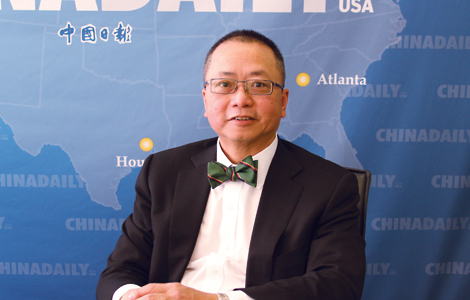
 'Global citizen' becomes head of C-100
'Global citizen' becomes head of C-100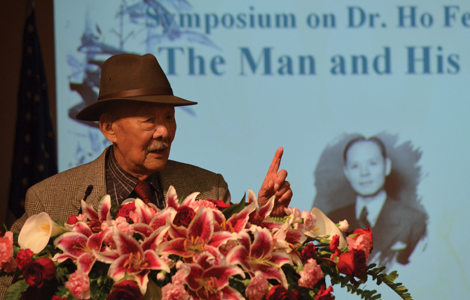
 At 96, a legendary chef can still inspire 'the best' Chinese food
At 96, a legendary chef can still inspire 'the best' Chinese food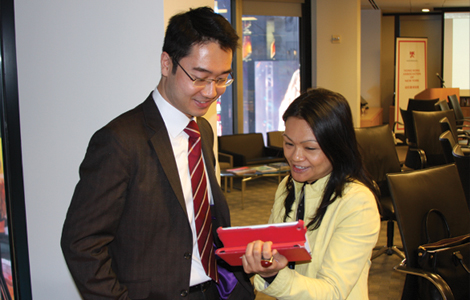
 China's wine consumption is growing
China's wine consumption is growing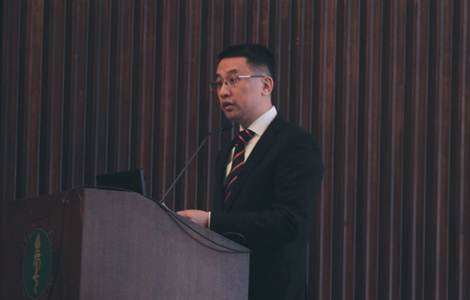
 China's reforms 'hitting right note'
China's reforms 'hitting right note'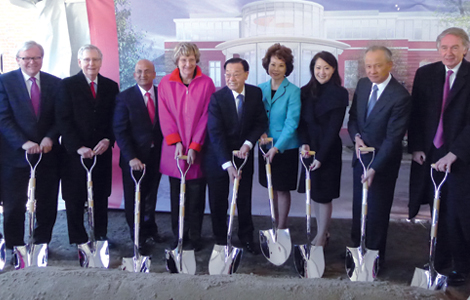
 Groundbreaking held for Harvard biz center named for a Chinese American
Groundbreaking held for Harvard biz center named for a Chinese American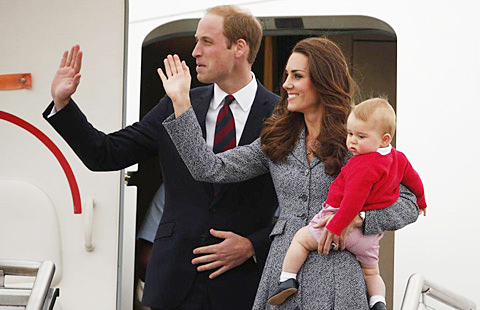
 UK royals wrap up tour of Australia and NZ
UK royals wrap up tour of Australia and NZ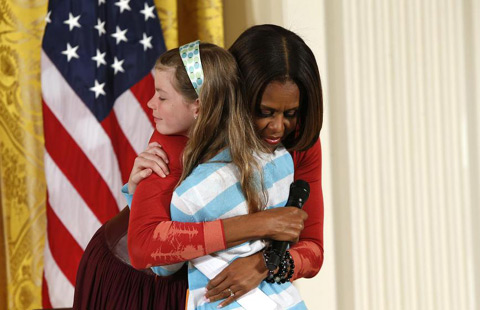
 Michelle honors 'Take our daughters and sons to work Day'
Michelle honors 'Take our daughters and sons to work Day'
 Pop-up cat cafe opens in New York
Pop-up cat cafe opens in New York
Most Viewed
Editor's Picks

|

|

|

|

|

|
Today's Top News
C-100 strengthens
US-China relations
David Tsang: Building a better future
Stephen Siu: Follow the star, no matter how far
Across America
Harvard dedicates new business center
Obama's Diaoyu Islands vow 'may backfire'
HK official says China's wine consumption can grow
US, Japan fail to reach TPP deal
US Weekly

|

|








